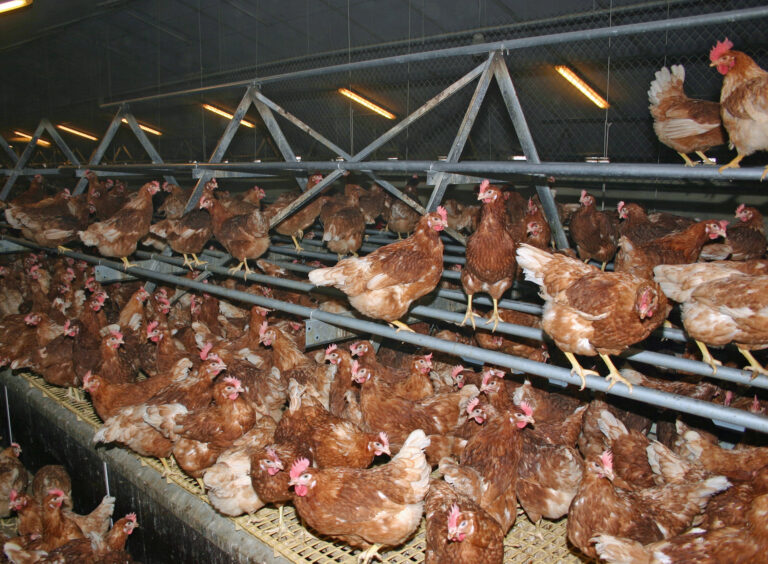Fipronil has once again been implicated in an egg contamination scare originating in the Netherlands, less than a year after last summer’s major incident.
The Agriculture Ministry of Lower Saxony said a large number of eggs due to be sold in Germany were found to be contaminated with fipronil in June, although the full scope and cause of the contamination remains unclear.
It comes as the Dutch government has released a report into last summer’s scandal, when more than 20 million Dutch eggs were removed from sale, with 200 Dutch poultry units and more than six million birds have been affected.
Agro Remijsen, the company that supplied fipronil to several Dutch businesses in order to kill red mites has gone bankrupt and a judicial investigation is still being carried out on the company, which has been sued for damages totalling millions of euros.
So how could it have happened again?
Although there is no evidence to suggest any of the eggs involved this time came into the UK, British Lion egg processors said it was time for more concrete action to protect British consumers, and the reputation of eggs.
The UK is estimated to have imported 1.9bn eggs in 2017. The majority of eggs imported into the UK are destined for processing or the food manufacturing industry.
The new Dutch Government report into last year’s incident has highlighted insufficient food safety standards, which may have some role in the most recent issue.
The report into the 2017 scandal concluded that the Dutch egg sector did not have sufficient safeguards in place and knowledge of statutory regulations was ‘too limited’. The report further concluded that ‘…many farms assessed the risks for food safety insufficiently. The red mite issues and the associated risk when using unauthorised means to combat these issues were known in the sector. However, the risks were assessed inadequately or even ignored’.
“We hope that the report acts as a wake-up call for egg producers in Europe and further afield, and that they start to put in place new food safety standards to guard against future incidents,” said
Ian Jones, from British Lion Egg Processors.
“Since the fipronil scandal broke last year, a number of UK food businesses have continued to import non-UK eggs and egg products and if they ignore these findings too, then those food manufacturers, caterers, wholesalers and retailers will face criticism of being complicit in supporting standards which can be lower.”
British Lion Egg Processors said it wanted the Food Standards Agency to launch a programme of random testing of eggs and egg products arriving in the UK. The majority of eggs imported into the UK are destined for processing or the food manufacturing industry.
“Unfortunately, we are not surprised by these developments as we have been concerned for some time that the initial issues following the product recalls we saw last year have not been thoroughly resolved,” said Andrew Joret the British Egg Industry Council chairman.
“With the extent of the issue unclear, we are asking the Food Standards Agency to take decisive action to protect UK food businesses and are calling for random testing of all imported eggs and egg products. Food businesses should protect themselves by specifying British Lion eggs and egg products, which are produced to the highest standards of food safety and reassure their customers by using the British Lion mark on pack.”
However, the FSA says there is no evidence to suggest Britain has been affected by the latest fipronil scare and has said nothing about whether it might introduce random testing.
And although there is no sign the scandal has affected consumer confidence in eggs, the repercussions from last year are continuing to be felt on the Continent and British producers are right to be wary about how any further similar scandals might play out.


